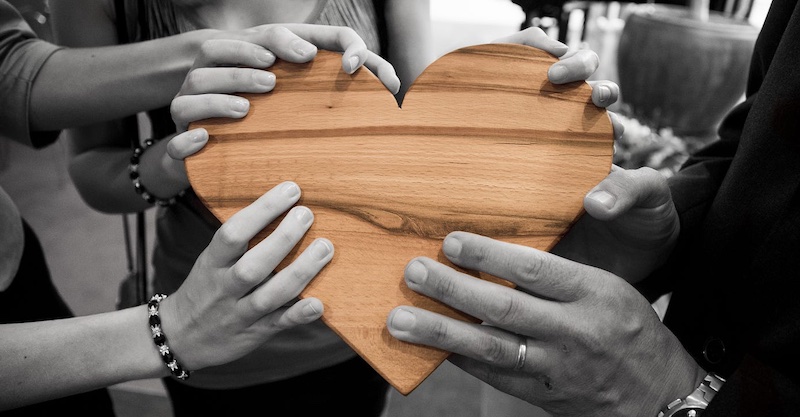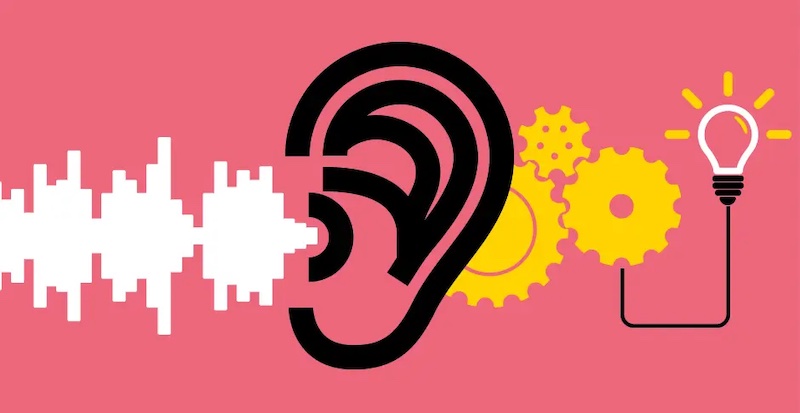Sponsored by 365 Days of Accountability

The single best subscription I have is the Daily Challenge from 365 Days of Accountability
In February 2022, Daveed Walzer Panadero came home from his job as a project manager, took a look at his two-year-old daughter, and had an epiphany.
His epiphany definitely improved – and maybe even saved – the lives of generations of people to come.
Daveed is an American. His daughter was born to a Ukrainian surrogate. So when the war broke out in Ukraine, he felt it hit close to home, even though it wasn’t actually happening close to home.
Many Ukrainian women, children, and elderly fled their homes (the men stayed to fight).
But fleeing was not an easy feat. It was one that had to mostly be done on foot. It’s not like they just jumped on an Amtrak to Paris and were eating croissants by dinner time.
They had no place to go, no way to get there, and oftentimes no money to support them on their journey.
Daveed was heartbroken and felt an urgent need to help these refugees. So that’s what he did.
A few days later, he left his daughter with his mother and bought a one-way ticket to Poland (where most of the refugees were headed).
Daveed didn’t speak Polish. Or Ukrainian. Or even Russian. I’m unclear on whether he spoke Mandarin, but that has nothing to do with this story so I’ll save that for my own personal research.
Daveed rented an AirBnB in Krakow, then went down to the train station where refugees were congregating. He announced that he had enough room to house five people. That first night, he gave a much-needed home to three sisters, a little child, and an 80-year-old great-grandmother who had all trudged across the border together.
When they left, he housed more people.
He kept doing this, over and over again. He fed them. He sometimes clothed them. He even bought some families’ plane/train tickets out of his own savings to help them on their journey.
He soon convinced five of his friends to join him in the efforts, and they began housing and caring for up to 75 refugees at a time.
It is estimated that Daveed helped care for and support more than 1,200 Ukranian refugees.
This is the point where I mention the term “radical empathy”.

What is Radical Empathy?
I talk about empathy quite a bit. In fact, it’s a primary topic in my leadership coaching and management consulting practices.
In order to be a leader, you must have followers. In order to have loyal followers, you really should have empathy. Like, seriously, bruh.
(Editor’s Note: Sorry, the writer momentarily morphed into a 10-year-old for a second. He’s back now. Whew. That was scary.)
At its basic level, empathy is about understanding and sharing the feelings of another person. To wear holes in an over-worn metaphor, it’s about putting yourself in their shoes and understanding their perspective.
Radical empathy takes it a step further.
In the prophetic words of Nigel from Spinal Tap, on a scale of one to ten, “This one goes to eleven”. When you think you have displayed all the empathy you can, the concept of radical empathy goes one step further.
Radical empathy is about actively seeking to understand the experiences, thoughts, and feelings of others.
Even more, though, It’s about consciously letting go of your own prejudices and perspectives to fully empathize with people who hold different views or live in different circumstances.
Let me explain this in a different way.
Empathy is all of us who heard about the war in Ukraine and were disturbed by the struggles of the people. Then we sipped on our half-caf almond milk lattes and went on with our day.
Radical empathy is Daveed.

Radical Empathy At Work
You don’t have to buy a one-way ticket to Poland, or even spend any money at all, in order to practice radical empathy. You can do it by just being a better version of yourself.
Be forewarned, being radically empathetic is uncomfortable. It’s a hard thing to do.
But guess what? You can do hard things.
The powerful thing about radical empathy is that it elicits meaningful and authentic responses. It takes leadership to the next level. It takes it to 11, if we’re going to continue the Spinal Tap callbacks.
Martin Luther King, Jr embodied radical empathy. So did Mother Teresa. Don’t forget Mahatma Gandhi, cause he did too. Come to think of it, Oskar Schindler, of “Schindler’s List” fame, is a perfect embodiment of radical empathy.
Radical empathy in the workplace empowers people and is transformational in its ability to elevate leaders (refer to Mahatma, Teresa, Oskar, and Martin above).
All radical empathy takes is a desire to actively work towards creating an environment that supports and empowers all individuals.
Here are 6 ways to embrace Radical Empathy:

1. Be an Active Listener
Don’t just hear what a person is saying, but make sure you fully understand and validate their feelings and experiences.
This means repeating what they have said to make sure you are getting it right. For instance, use words like: “Let me tell you what I’m hearing…”
(Editor’s Note: Listen to Josh Tan in his CXO Circle interviews to hear somebody who is a wonderful Active Listener)
It means understanding how they are impacted with words like, “How did it feel to you when ____?”
And it means finding out how you can best support the person by saying “What can I do to best support you?”… and then doing it.
2. Embrace Diversity
To be radically empathetic means creating an environment where everyone feels like they belong.
Diversity extends beyond skin color. It includes body type, neurodiversity, gender, sexual preference, people with disabilities, and more.
- Is the language in your marketing assets inclusive?
- Are your photos showing diversity?
- How diverse are the people who recruit and interview new candidates?
- How diverse is your staff? Your leadership team?

3. Challenge Your Biases
We all have biases, that’s just part of being human.
To be radically empathetic means acknowledging and challenging your biases. It means being conscious of how your biases influence your decisions and then changing them accordingly.
Maybe you favor one person over another because of their looks, their weight, the way they dress, or how they speak.
Recognize it, acknowledge it, and change it.
4. Be an Advocate
Radical empathy is about standing up for others, especially those who may be marginalized or underrepresented.
When people are being treated unfairly, it means doing more than complaining. Put yourself on the line and push for change. Find the fin in you.
5. Build Trust
Building trust is a by-product of radical empathy.
By being transparent, authentic, and accountable you can build a culture of trust.
6. Support Each Other’s Growth
Everybody has their own career goals and personal life situations. Understand them and be flexible.
Radically empathetic environments provide resources for each other.
This may mean daycare or staggered hours for parents of young children. It means continued learning opportunities for employees to grow. Maybe the entire company closes for a global week of rest.
Once you start thinking of ways to support others’ growth, the options are limitless.
The Radical Ideal of Radical Empathy
I get it. Being radically empathetic is not as easy as me writing an article about radical empathy and – poof! – it magically happens. As Amelia Earhart once said before she mysteriously disappeared over the ocean:
“The most difficult thing is the decision to act.”
The hardest part about radical empathy is the decision to be radically empathetic.
But here’s the thing – it works.
I challenge you to think through the six items above and come up with opportunities for you to practice each one. Try it once and see what happens.
- Next time you’re tempted to judge somebody – don’t.
- When you see injustice happening, stop it.
- If you see someone struggling, help them stand tall.
Radical empathy lifts everybody up and creates a positive, inclusive, and supportive environment. So take a cue from Daveed, and next time you’re feeling empathy, reach over to the knob and turn it up to 11.
A Somewhat Relevant Quote
“Empathy is the most radical of human emotions“
Gloria Steinem,, journalist, activist
Random News
Pretty in Pink – The rare pink grasshopper
Beyonce 182 – This has a ring to it
Nail Job – When a guy tries to commit a robbery and nobody cares
Late Fees – And you thought you were late
